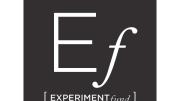In an effort to keep the next Bill Gates and Mark Zuckerberg from fleeing to Silicon Valley, the University has partnered with a venture capital firm, New Enterprise Associates (NEA)—the first outside investor in Groupon Inc.—to begin the Experiment Fund, a seed-stage venture fund that will bankroll student start-ups developed and maintained in Cambridge.
Hosted by the School of Engineering and Applied Sciences (SEAS), the Experiment Fund will select certain student start-ups to receive up to $250,000 in seed funding during the next two years, focusing on three core areas: information, healthcare, and energy technologies. Although the fund is affiliated with the University and will initially start with Harvard students, it will operate independently and will eventually consider teams from other local schools, and in other East Coast locations. SEAS dean Cherry A. Murray will designate faculty members from the school to advise student entrepreneurs about the fund and other available resources, such as the new Harvard Innovation Lab.
“We are very excited about the Experiment Fund; we believe it will provide a much-needed set of people, skills, and financial resources to spur the innovation and idea creation of our students,” said Murray in a press release.
The idea for a fund to keep the “next big thing” in Cambridge developed from collaboration among Hugo Van Vuuren ’07, two venture capitalists from NEA— Patrick Chung ’96, J.D.-M.B.A. ’04, and Harry Weller, M.B.A. ’98—and McKay professor of the practice of biomedical engineering David Edwards, who will serve as an adviser to the fund. Van Vuuren, a recent fellow at the Berkman Center for Internet and Society and current student at the Graduate School of Design, said that he and his partners are looking for “smart and resourceful people, zealous full-time teams, and experiments in need of seed funding and hands-on help to get off the ground.”
Chung, who is co-head of NEA’s consumer and seed-stage investing practices and serves as an expert-in-residence at SEAS, said the fund will entice young innovators to stay connected to the area: “Cambridge has always seeded and cultivated brilliant minds and entrepreneurs, and now they’ll have another reason to stay rooted in and draw strength from these fertile soils,” he said in a press release.









